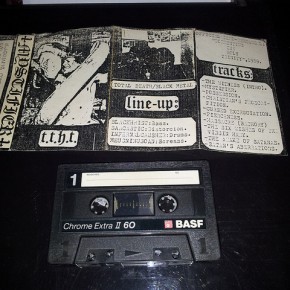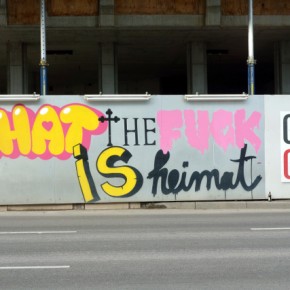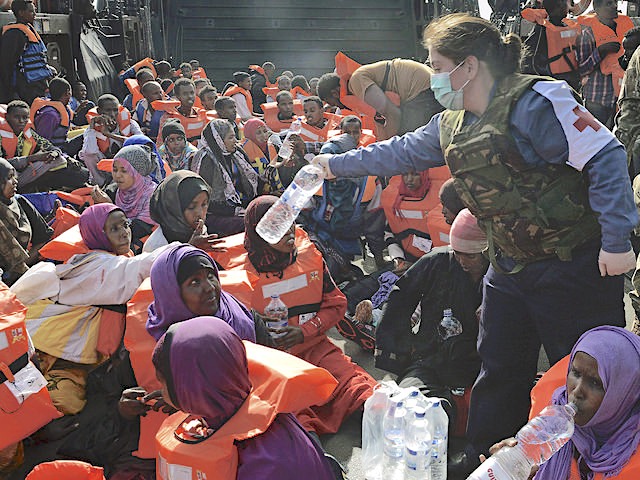A moustachioed face emerged from a bundle of coats and scarves. Levon, talkative as ever, is warming his hands to the festive glow of a slowly rotating Döner kebab at Café Aleppo, Yerevan. Shwarma can take a while to prepare, especially with numb fingers. Business could be better. Customers don’t hang around in the cold weather. A small electric heater hums ominously, as does Levon’s wife, Dalita. A refrigerator is broken, and he can’t fix it.
The silence is broken pretty quickly too, in that pathetically British way – by mentioning the weather.
The weather is, as luck would have it, a subject actually meriting a minute or two. This is an unusually cold winter for Yerevan, and for its several thousand Syrian-Armenian refugees. Not, it should be mentioned, that they would be much warmer in Damascus this year. An ambitious housing plan outside Yerevan – the New Aleppo for refugees from Syria – is still just that, a housing plan.
Last week, the Armenian government approved the allocation of apartments in New Aleppo to refugee families in Syria, and over six hundred families have applied. The finalised plan is impressive. The taxi drivers in Ashtarak, however, will laugh should you ask them to take you there. Meanwhile, another resettlement for refugees continues in the Kashatagh Region of the unrecognised Republic of Nagorno-Karabakh.
The flag of the Syrian Arab Republic still hangs from the railings outside its Embassy on Yerevan’s Baghramyan Avenue, where its information board offers a scant selection of photographs to passerby. Presidents Al-Assad and Sargsyan offer handshakes and grins. Cynics love a harsh winter. Following President Sargsyan’s September declaration that Armenia was to join the Russian-led Customs Union, and subsequent visit of Vladimir Putin to Yerevan on December 2nd (and to the Russian 102nd military base in Gyumri,) a popular joke has had a little more resonance. The tamozhenniy soyuz (Customs Union) has become the tayozhny soyuz (Taiga Union.)
My place of work has changed, and with it the daily commute, which no longer takes me past Café Aleppo. Be that as it may, the small detour is one worth making. Levon’s words are as harsh as this Yerevan winter, and just as unexpected. Levon serves Khachapuri, a Georgian snack common in street food in Armenia. They’re ready-made, nestling together for warmth under a sheet of clear plastic mottled with snowflakes. I order one, and he microwaves it for thirty seconds. The microwave’s whirring has barely begun before Levon draws his index finger and speaks.
“You know Andalus?”
The melted cheese of the Khachapuri scorched my tongue. In any case, I knew I’d be speechless at some point, somehow. I nodded, and breathed in the cool winter evening. Southern Spain, Moors, Cordoba, Reconquista.
“Yes, yes, yes. Then the Christians, they push them out.”
Levon’s palm swept the Alhambra aside.
“The same will happen in Syria,” he continued.
We stared at each other. Levon recommended a film, by an Arab director, of the Reconquista and history of Al-Andalus. “Oscar!” he beamed, with a thumbs-up.
One common misunderstanding I face when explaining my research in Armenia is conducted entirely in English. I am researching, among other communities, the Assyrians of Armenia. In reply, I’m asked why I am interested in Syrians, and furthermore, why only one of them? The assumption may be a reasonable one, to a point. Syria and Syrians, after all, are headline material. The etymological differences are complex and a matter for debate. In Armenian, however, the term “Asoriner” (Assyrians) is less problematic. I was researching, I told Levon, Asoriner in Armenia. He raised an eyebrow, chewed his lower lip, and contemplated the word.
“There are,” he announced (in capital letters) “too many secrets in the Qu’ran.”
He opened the sandwich grill, studied its contents intently, and proceeded to scrape out encrusted cheese and breadcrumbs.
“Who wrote the Qu’ran?”
‘…’
“Who could write from the Arabs?”
“Asori?” (A wild guess, but a reasonable one in this situation.)
“Yes! Asori wrote the Qu’ran!”
He stood back and admired his handiwork, and closed the greasy tome with a conclusive thud.
“Say Muhammad,” ordered Levon
“Muhammad,” I replied.
“Listen to the name. He is not an Arab.”
“Muhammad… Uhammad… Yohanna.”
He leaned forward and added, conspiratorially.
“Yohanna – he was a Christian.”
I took a leap of faith (an Abrahamic one, in any case.)
“Asori?”
Levon beamed.
Muhammad, I had discovered, in a Yerevan side street, was an Assyrian.
“He was a criminal! A Christian criminal! If he was here today, the Mukhabarrat, the CIA would arrest him!”
The offices of the KGB, as the Armenian National Security Service is still quaintly referred to, were not so far away, I added. Levon laughed and suggested we go and visit together.
There are without a doubt more comfortable places to eat Syrian food in Armenia’s capital. Winter may have come, but I’ve still yet to visit them.
Levon is and was a composite character of three Syrian Armenians I have come to know, although only as a dedicated customer. These conversations were from various Levons, three of several thousand in Yerevan. They are doctors, hotel owners and car salesmen.
Levon has returned to an ethnic homeland which he, or his ancestors, may never have seen – this frozen Eastern Armenia, which he has warmed with the spice of his Za’atar and, occasionally, his bittersweet laughter.
Photograph courtesy of the author.





